The period just started, and you have snorkeling plans? Let's talk about what actually matters. Most people worry about three things: safety, hygiene, and whether sharks can somehow sense menstrual blood (spoiler: they can't). The truth is, there's no medical reason to skip snorkeling during your period. This guide covers the real facts about swimming during menstruation, from infection risks to comfort tips, so you know exactly what to expect in the water.

Is It Safe to Snorkel When You Have Your Period?
In fact, it is perfectly safe. There is no health reason to avoid snorkeling during your period. Doctors and gynecologists agree that swimming during menstruation poses no health risks—your body works just as well in the water as out.
Your Period Won't Stop or Reverse in Water
One of the most common worries is that swimming will undo your period or cause it to never come. It doesn't work like that. Your uterus sheds its lining based on hormones, not on what you're doing.
Water pressure may diminish the flow while you’re submerged, yet your period persists as usual. When you emerge from the water, you'll observe a return to your regular flow. Imagine it as akin to submerging a running garden hose; the water doesn’t cease to flow, it simply encounters resistance.
Swimming Often Reduces Period Cramps
Even swimming in water can ease cramps. Floating or swimming sends more blood to your muscles, which has a tendency to ease pain. The warm ocean water (usually 75-85°F at snorkeling depths) works as a heating pad on the stomach.
Most women also experience a reduction in bloating after swimming. The position, coupled with the gentle pressure of the water, can help alleviate that bloated sensation in the abdomen. Just be sure to drink lots of water before and after, as you require more fluids when you're on your period.
The key is to listen to your body. If you are fit enough to snorkel, then, by all means, do so. If cramps are severe, maybe wait until a less strenuous day.
Does Snorkeling Increase the Risk of Infection During Menstruation?
The short answer: snorkeling will not significantly increase your risk of infection during your stay. However, the type of water you are in and what you do afterward will keep you healthy.
Saltwater Is Generally Safer Than Freshwater
Water in the ocean, where most snorkeling occurs, is actually less likely to lead to infection than lakes or rivers. The salt water contains natural antibacterial elements. While it is not entirely sterile, the salt concentration makes it harder for many disease-causing bacteria to survive.
Freshwater has been a comparatively greater risk, as bacteria find it easier to survive in such an environment. Lakes and rivers may harbor organisms that can lead to bacterial vaginosis or urinary tract infections. Nevertheless, the risk is still low while swimming in well-maintained, clean waters.
Your vagina also has a protective mechanism that is always active, even when you are on your period. The pH in your vagina is acidic and works to repel most bacteria when swimming.
Watch Out for Polluted Water
The real concern isn't your period—it's water quality. Avoid snorkeling near:
- Storm drain outlets
- Areas with visible pollution or trash
- Spots where boats dump waste
- Beaches with posted warnings about water quality
Chlorinated pools can sometimes irritate sensitive tissue during menstruation. The chemicals that kill germs can also disrupt your vaginal pH balance, especially if levels are too high.
Simple Steps to Stay Healthy
After snorkeling, rinse off with fresh water as soon as possible. This washes away salt, sand, and any bacteria before they cause problems. Change out of your wet swimsuit quickly—sitting in damp fabric creates a warm environment where bacteria thrive.
If you use tampons while snorkeling, change them soon after leaving the water. A water-logged tampon can introduce bacteria. Consider bringing extras and finding a clean bathroom before your trip home.
Pat yourself dry gently and wear breathable underwear. These basic hygiene steps work whether you're on your period or not.

Will Blood Attract Sharks or Marine Animals While Snorkeling?
No, your period won't attract sharks. Marine biologists have studied this extensively, and the science is clear: sharks don't hunt humans based on menstrual blood.
What Research Actually Shows About Sharks and Menstrual Blood
Sharks can detect blood in water—that part is true. But they're looking for fish blood, not human blood. Sharks are more interested in the amino acids from the blood and guts of marine animals, as these are the creatures they evolved to eat.
Studies have tested how sharks respond to different types of blood. They show strong interest in fish blood but little to no reaction to human blood, including menstrual blood. In the 1960s, researcher H. David Baldridge introduced various human bodily fluids, including menstrual blood, to wild sharks in ocean pens. Menstrual blood did not trigger a feeding frenzy.
Dr. Steve Kajiura from Florida Atlantic University's Shark Lab explains that while sharks have an excellent sense of smell, "You can smell a landfill, but it won't make you want to eat it" No, menstrual blood does not attract sharks. Human blood is simply not on their menu.
The quantity of blood is also minimal. The average person loses about 30-40ml of blood over several days during their period, and menstrual fluid is mostly mucus and tissue with only small amounts of blood. Once in the ocean, this tiny amount disperses immediately.
The International Shark Attack File states there's no positive evidence that menstruation is a factor in shark bites. Currently, more than 80% of recorded shark bites happen to men, which reflects who's historically spent more time in the ocean rather than any preference sharks might have.
Why Snorkeling Is Even Safer
Most snorkeling happens in shallow water near shore, where large predatory sharks rarely venture. You're typically floating at the surface, often in groups, making noise and splashing—all things that sharks prefer to avoid.
Popular snorkeling spots usually feature reef sharks, which are small and eat fish, not humans. These sharks are used to swimmers and generally keep their distance. You're more likely to see them swimming away than coming toward you.
Open Ocean vs. Reef Snorkeling
Deep-water diving is different from snorkeling over a reef. In the open ocean, you might encounter larger pelagic sharks. But even then, divers regularly report that sharks show more interest in shiny equipment or fish on spearguns than in the divers themselves.
Reef snorkeling keeps you in predictable, controlled environments where:
- Water is clear and shallow (usually under 20 feet)
- Shark species are smaller and less aggressive
- Other snorkelers and boats create an activity that sharks avoid
- Tour operators know the area and monitor conditions
Sharks have been sharing the ocean with menstruating humans for as long as we've been swimming. If periods attracted sharks, beaches would be far more dangerous than they are.

Comfort and Cramp Management Tips While Snorkeling
Managing your period while snorkeling is mostly about staying comfortable. With a few simple strategies, you can enjoy the water without letting cramps or discomfort ruin your experience.
Prepare Your Body Before Getting In
Start hydrating at least an hour before you snorkel. Dehydration makes cramps worse, and you lose fluids faster in salt water and sun. Drink 16-20 ounces of water beforehand, and bring a water bottle for afterward.
Do some gentle stretches on the beach, focusing on your lower back and hips. Try these simple moves:
- Stand and gently twist your torso from side to side
- Do a few forward bends to loosen your lower back
- Circle your hips slowly in both directions
Take an over-the-counter pain reliever 30 minutes before swimming if you usually get cramps. Ibuprofen works well since it reduces inflammation that causes period pain.
Choose Gear That Supports Your Body
A well-fitting wetsuit can actually alleviate cramping. The compression around your torso is like a heating pad, it supports and warms you. Ensure it is tight but not overly so; you should still be able to breathe comfortably.
Do not neglect your snorkel mask fit. A mask that is too tight can give you headaches, which are the last thing you need on top of period pain. The strap should be snug but not tight against your head. If you are prone to period headaches, experiment with a snorkel mask featuring a softer, wider strap that distributes pressure more evenly.
If you are not wearing a wetsuit, wear a one-piece swimsuit that offers good coverage and support. Avoid bikini bottoms that dig into your hips or lower stomach, as this will make cramping less comfortable.
If you are a tampon user, bring spares in a waterproof bag. The saltwater won't harm your tampon, but you might want to change it after snorkeling for comfort.
Know When to Take a Break
Your body uses more energy during your period, so don't push yourself. If you start feeling tired or crampy in the water, signal your group and head back to the boat or shore. There's no shame in taking a rest—you can always go back in later.
Watch for these signs that you need a break:
- Increased cramping or back pain
- Feeling lightheaded or extra tired
- Nausea (which can worsen with wave motion)
Keep your snorkeling sessions shorter than usual. Instead of one long swim, try two or three shorter outings with rest periods between. This gives you time to rehydrate, reapply sunscreen, and check in with how you're feeling.

Go Snorkeling—Your Period Doesn't Have to Stop You!
Snorkeling during your period is okay. You will not attract sharks, you are not more apt to develop an infection, and the water might even help cramps. Simply use a tampon or menstrual cup, bring spares along, and shower afterward. If your body feels fine, go for it. If you're experiencing a particularly difficult day with heavy bleeding or severe cramps, maybe wait. But don't miss snorkeling simply because you're on your period. Pack what you require and indulge in the water.
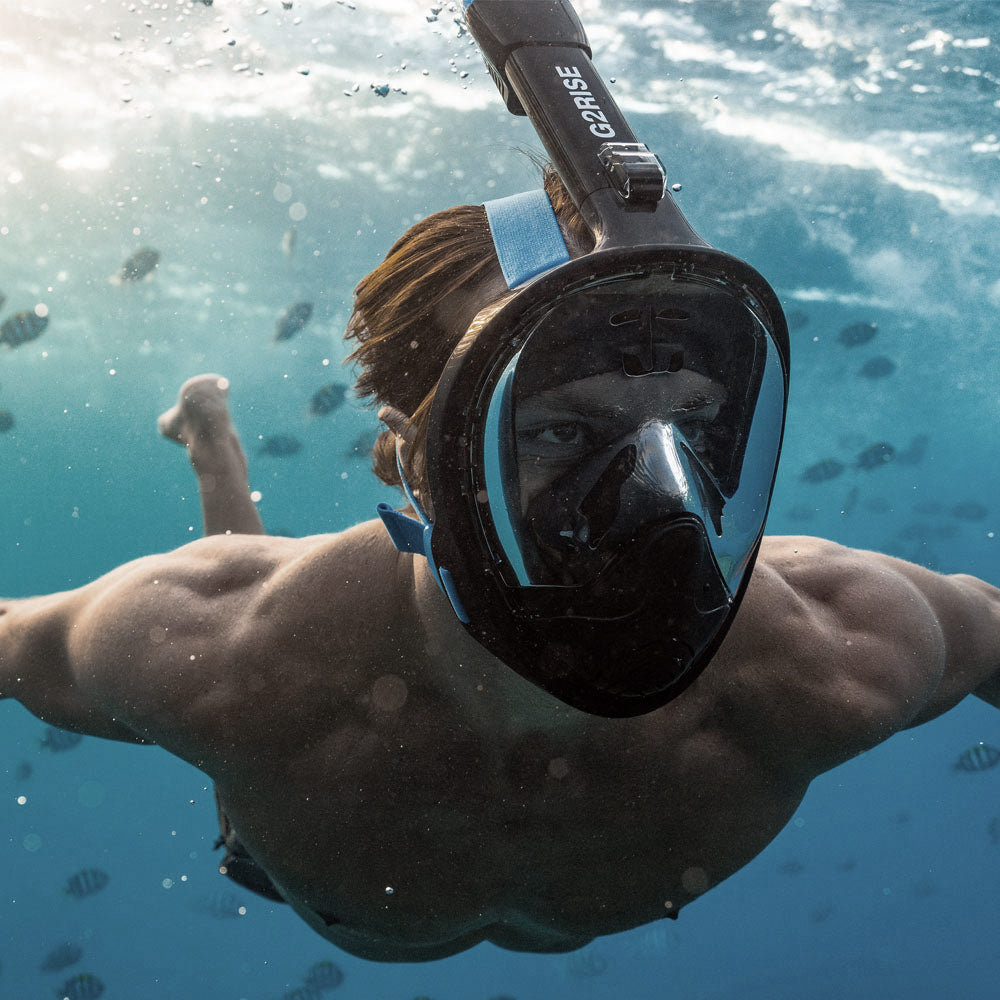
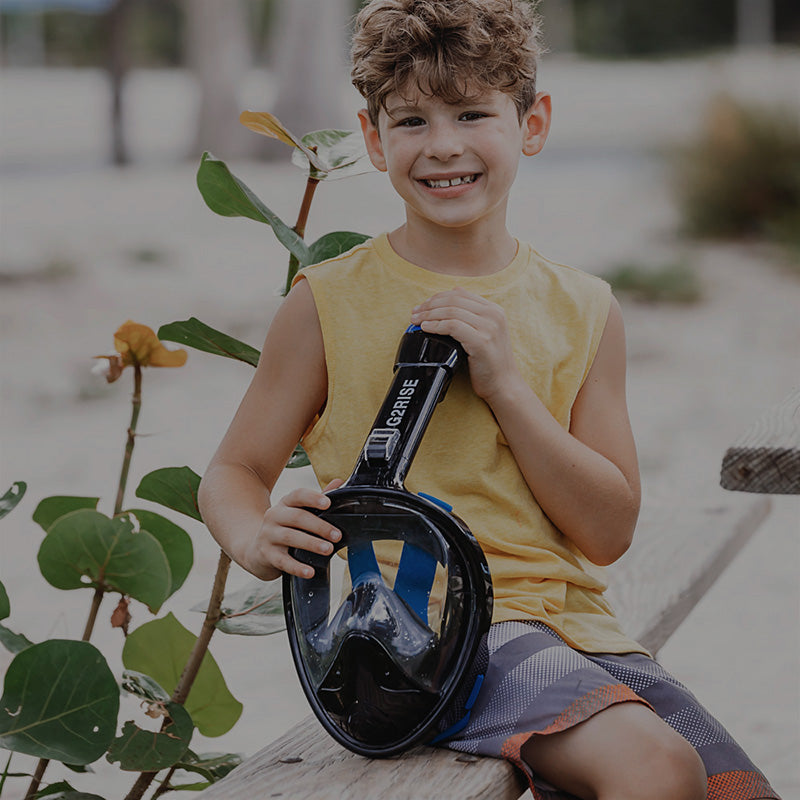
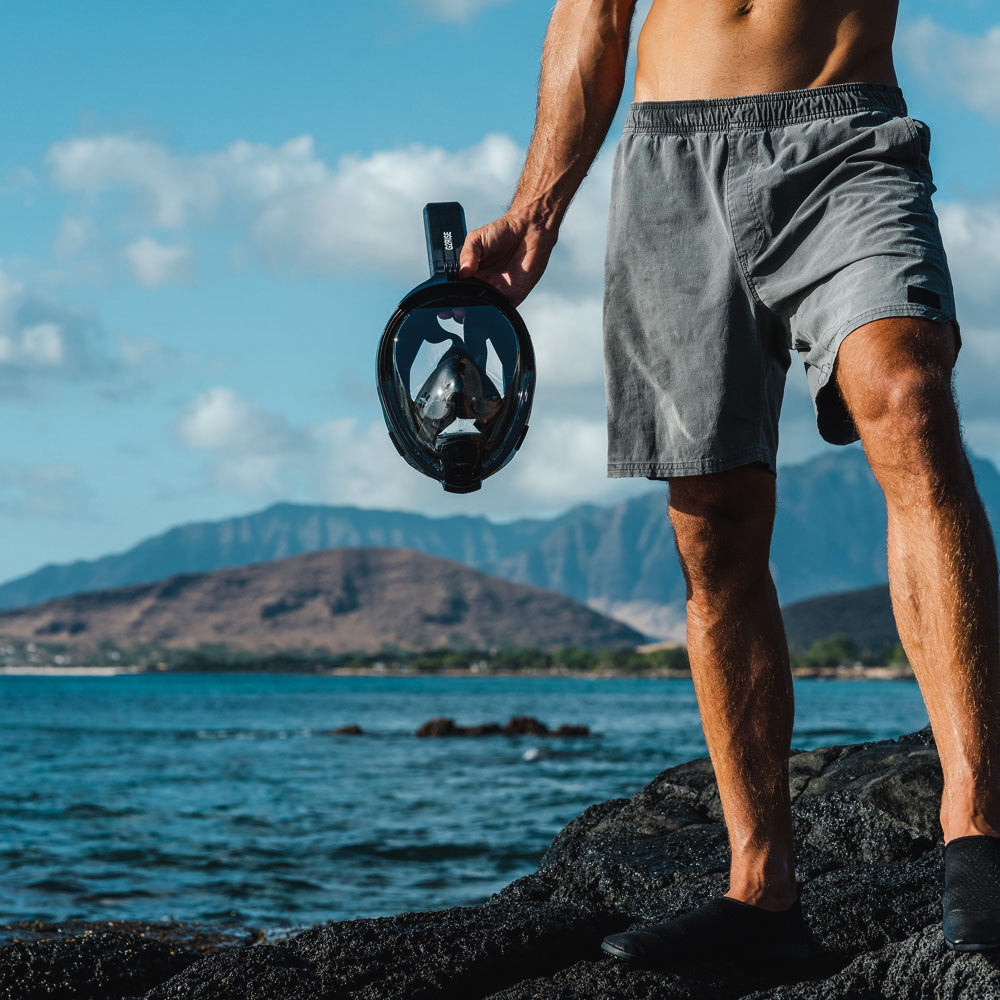
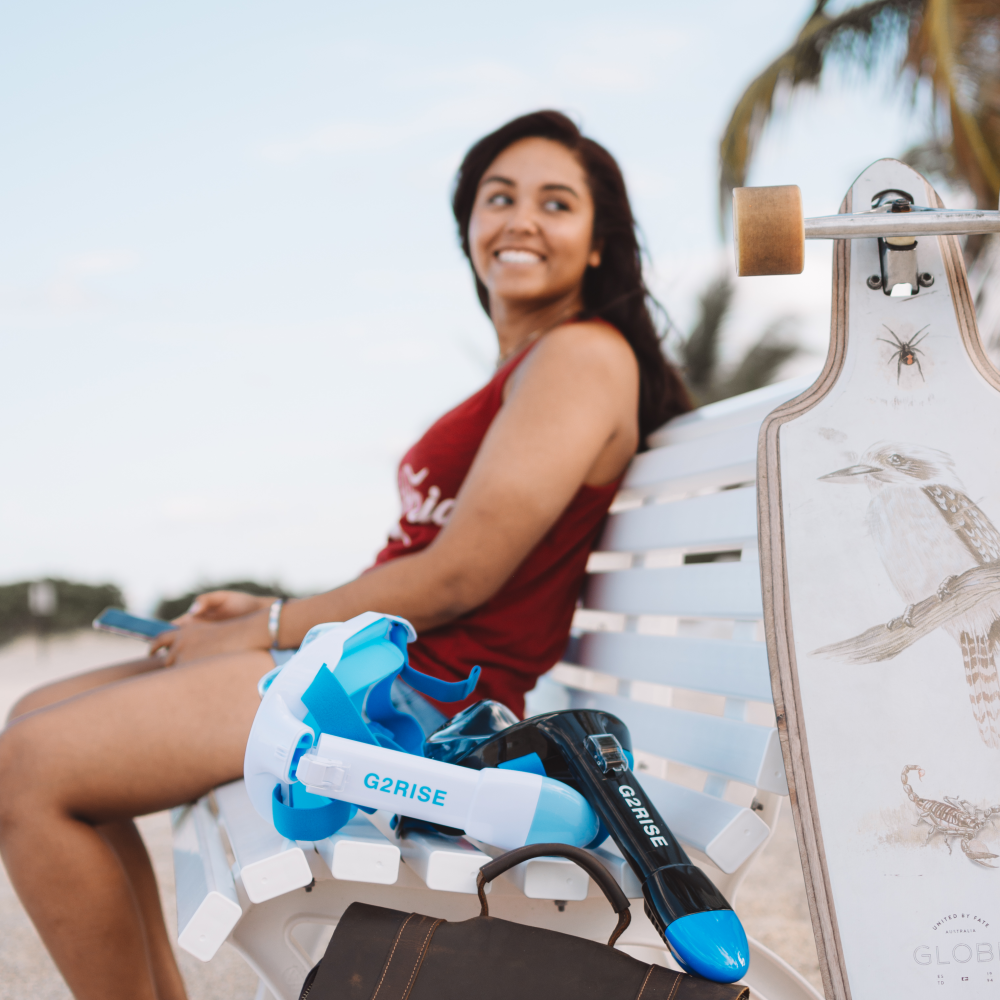
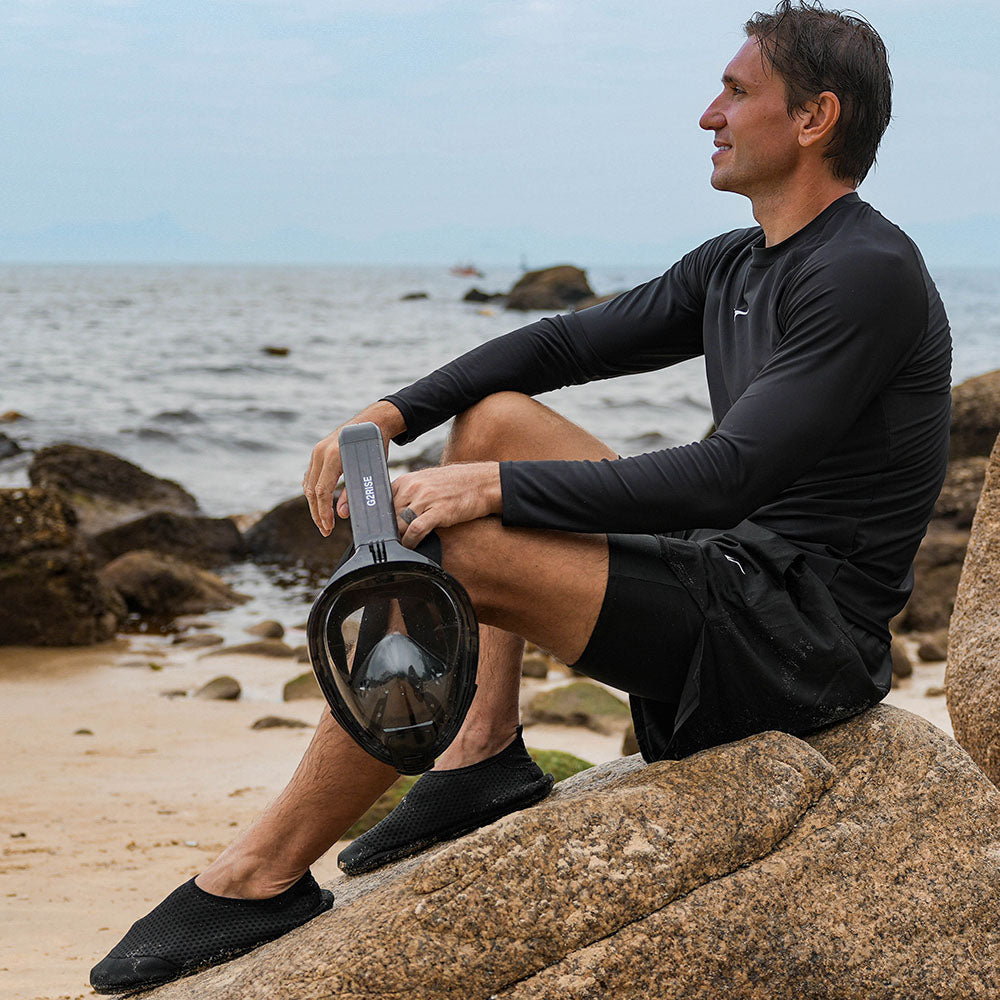


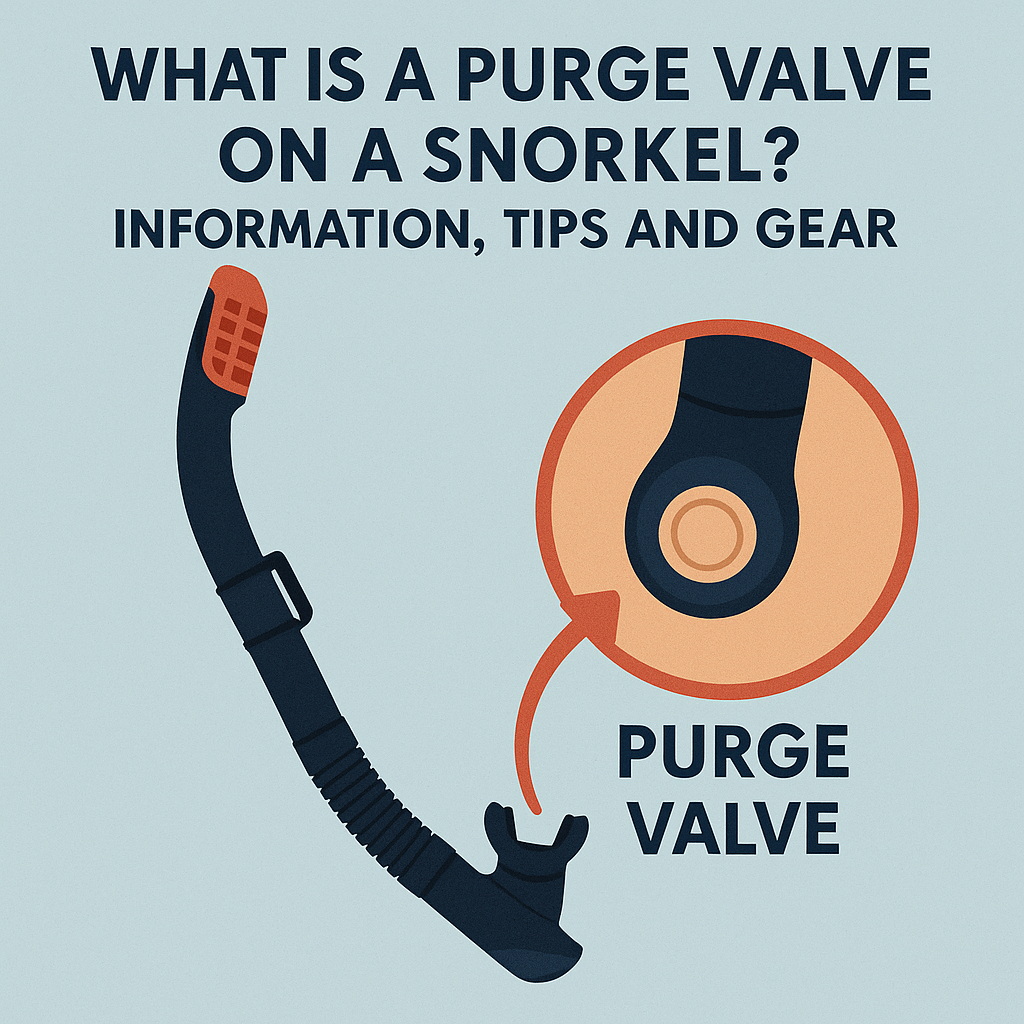

Leave a comment
This site is protected by hCaptcha and the hCaptcha Privacy Policy and Terms of Service apply.